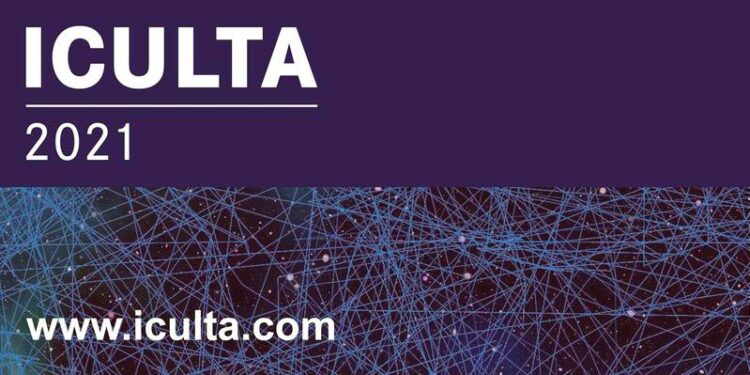Becoming a flagship of the UV LED community – ICULTA 2021

International Conference on UV LED Technologies & Applications
For the second time, ICULTA – the ‘International Conference on UV LED Technologies & Applications’ – presented a forum for the UV LED community. Over 320 participants from 33 countries exchanged ideas and results on cutting-edge UV LED topics.
The program of last week’s virtual event covered the most recent and novel developments in UV LED manufacturing, including applications in health care, environment and life sciences, curing, and metrology. A running theme in many of the sessions was the role of UV and UV LEDs to address Covid-19, in particular the disinfection of air and surfaces. Overall, the conference served to bring together the world’s foremost LED makers, users, and researchers in an environment that fostered an excellent and productive sharing of information.
Unique conference covering the wide range of UV LED topics
“The strong attendance with over 320 participants from 33 countries has shown how necessary the exchange between UV LED developers and users is”, concludes Sven Einfeldt on ICULTA 2021. The conference chair from Advanced UV for Life and Head of the GaN Optoelectronics Lab at Ferdinand-Braun-Institut in Berlin highlights the lively and fruitful discussions in the live chats. “In order to advance UV LED technologies, it is important to look beyond our own horizons. We have provided this opportunity with ICULTA 2021.”
A panel discussion on the urgent need and difficulties for standardization and certification of water disinfection systems completed the conference. Experts in the field of characterization of the optical properties of UV LEDs and lamps, manufacturers of UV disinfection systems, certification institutions, and final users took active part in this open exchange. Oliver Lawal, CEO of Aquisense Technologies and ICULTA co-chair from the International UV Association (IUVA) summarizes: “In this panel, we agreed that the current standards for mercury lamp systems have somewhat limited applicability to UV LED systems. However, we have to find a global consensus to simplify market access for the innovative semiconductor-based products, yet ensure robust and safely deployed solutions.”
To be continued…
The entire field of UV LEDs continues to evolve dynamically. Many exciting developments, such as increasing power and efficiencies, and falling prices of UV LEDs, can be expected in the coming years. The Advanced UV for Life consortium and the International Ultraviolet Association have already announced ICULTA 2023 to further promote the exchange of current findings in the UV LED community and to enable a view of what the future might hold in this exciting field.
Wissenschaftliche Ansprechpartner:
Antje Mertsch
‘Advanced UV for Life’ (Germany) c/o Ferdinand-Braun-Institut
antje.mertsch@fbh-berlin.de
Mickey Fortune
IUVA (USA)
mfortune@iuva.org
Weitere Informationen:
https://www.iculta.com/ – link to the conference
https://www.advanced-uv.de/en/ – a consortium of about 50 German industrial and academic partners working together in the development and application of UV LEDs.
http://www.iuva.org – an international organization of UV industry, educators, consultants, utilities, and research professionals, with a mission to make the use of ultraviolet light a leading technology for public health and environmental application.
Media Contact
All latest news from the category: Event News
Newest articles

High-energy-density aqueous battery based on halogen multi-electron transfer
Traditional non-aqueous lithium-ion batteries have a high energy density, but their safety is compromised due to the flammable organic electrolytes they utilize. Aqueous batteries use water as the solvent for…

First-ever combined heart pump and pig kidney transplant
…gives new hope to patient with terminal illness. Surgeons at NYU Langone Health performed the first-ever combined mechanical heart pump and gene-edited pig kidney transplant surgery in a 54-year-old woman…

Biophysics: Testing how well biomarkers work
LMU researchers have developed a method to determine how reliably target proteins can be labeled using super-resolution fluorescence microscopy. Modern microscopy techniques make it possible to examine the inner workings…





















